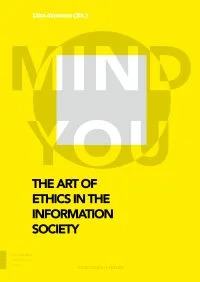By Michael Polanyi
From Chapter 1: “What is the nature of science? Given any amount of experience, can scientific propositions be derived from it by the application of some explicit rules of procedure? Let us limit ourselves for the sake of simplicity to the exact sciences and conveniently assume that all relevant experience is given us in the form of numerical measurements; so that we are presented with a list of figures representing positions, masses, times, velocities, wavelengths, etc., from which we have t oderive some mathematical law of nature. Could we do that by the applicationo f definite operations? Certainly not….”
Chicago And London. The University Of Chicago Press. 1946. 95p. CONTAINS MARK-UP
By Murray Gell-Mann
From the Preface: “…The book is divided into four parts. At the beginningof the first part, I describe some personal experiences that led me to write it. Taking long walks in tropical forests, studying birds, and planning nature conservation activities, I became excited by the idea of sharing with readers my growing awareness of the links between the fundamental laws of physics and the world we see around us. All my life I have loved exploring the realm of living things, but my professional life has been devoted mostly to research on the fundamental laws. These laws underlie all of science (in a sense that is discussed in this book) but often seem far removed from most experience, including a great deal of experience in the other sciences. Reflecting on questions of simplicity and complexity, we perceive connections that help to link together all the phenomena of nature, from the simplest to the most complex…”
London. Little, Brown and Company. 1994. 386p. CONTAINS MARK-UP
By Charles Darwin
Edited By Charles W Eliot. From the Preface: “The Voyage of the *Beagle’ has been by far the most important event in my life, and has determined my whole career. ... I have always felt that I owe to the voyage the first real training or education of my mind; I was led to attend closely to several branches of natural history, and thus my powers of observation were improved, though they were always fairly developed. . . .”
“The above various special studies were, however, of no importance compared with the habit of energetic industry and of concentrated attention to whatever I was engaged in, which I then acquired. Everything about which I thought or read was made to bear directly on what I had seen or was likely to see; and this habit of mind was continued during the five years of the voyage. I feel sure that it was this training which has enabled me to do whatever I have done in science.”
NY. P F Collier & Son. 1843. 517p. .
By Charles Darwin. Edited By Francis Darwin.
From the editor: In preparing this volume, which is practically an abbreviation of the Life and Letters (1887), my aim has been to retain as far as possible the personal parts of those volumes. To render this feasible, large numbers of the more purely scientific letters are omitted, or represented by the citation of a few sentences. In certain periods of my father’s life the scientific and the personal elements run a parallel course, rising and falling together in their degree of interest. Thus the writing of the Origin of Species, and its publication, appeal equally to the reader who follows my father’s career from interest in the man, and to the naturalist who desires to know something of this turning point in the history of Biology. This part of the story has therefore been told with nearly the full amount of available detail.
NY. Dover Publications. 1892. 408p.
By Daniel C. Dennett
From the preface: Darwin’s theory of evolution by natural selection has always fascinated me, but over the years I have found a surprising variety of thinkers who cannot conceal their discomfort with his great idea, ranging from nagging skepticism to outright hostility. I have found not just lay people and religious thinkers, but secular philosophers, psychologists, physicists, and even biologists who w'ould prefer, it seems, that Darwin were wrong. This book is about why Darwin’s idea is so powerful, and why it promises—not threatens—to put our most cherished visions of life on a new foundation.
NY. Touchstone.1995. 568p. CONTAINS MARK-UP







